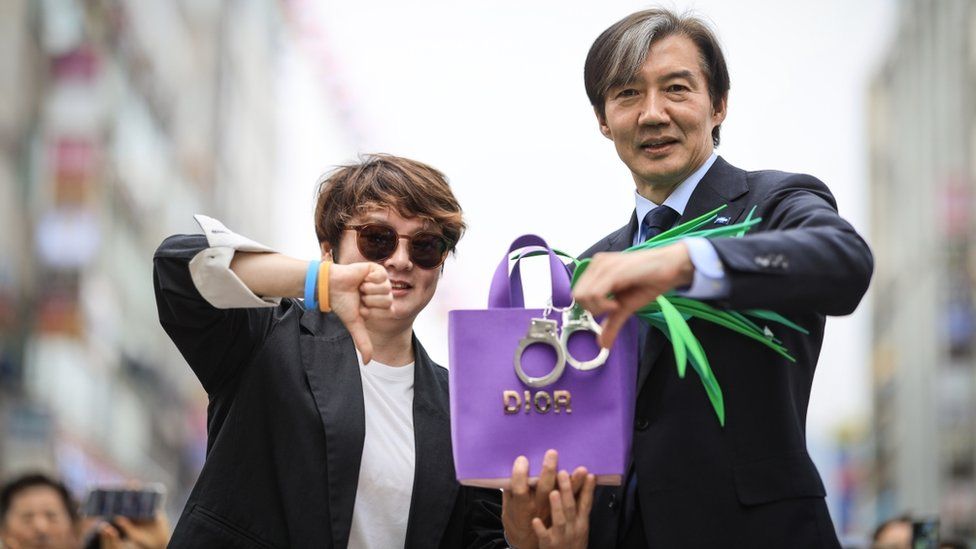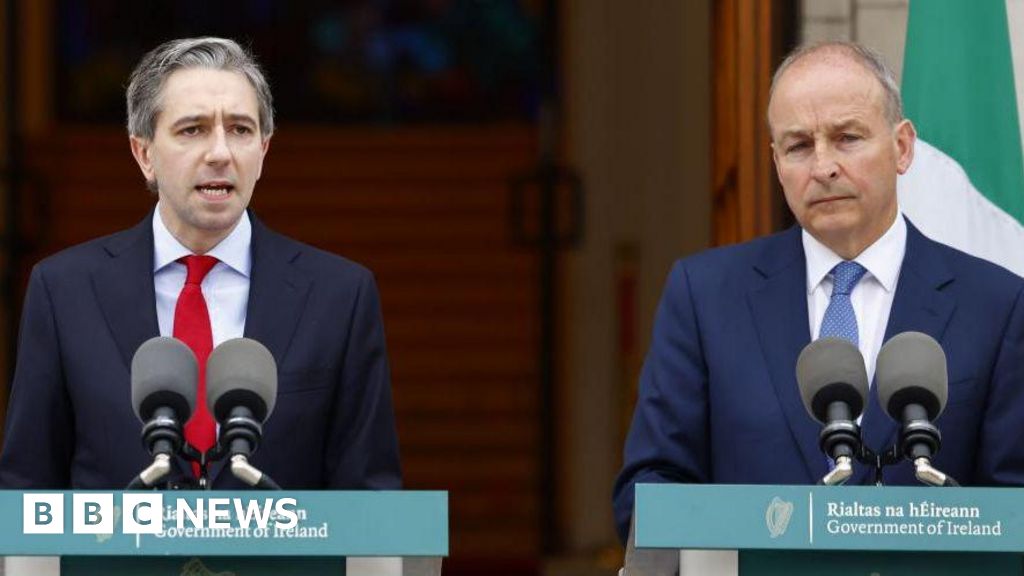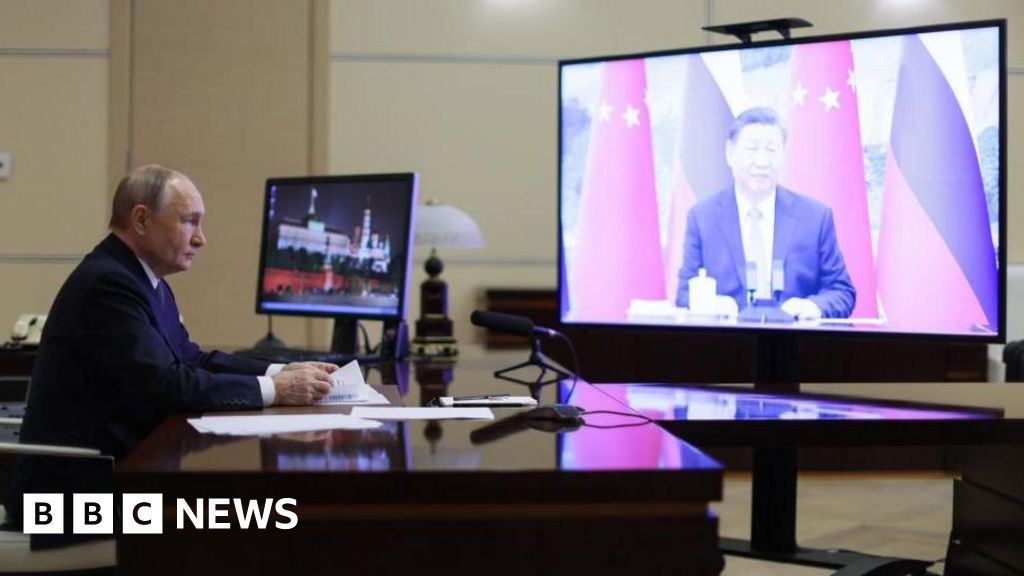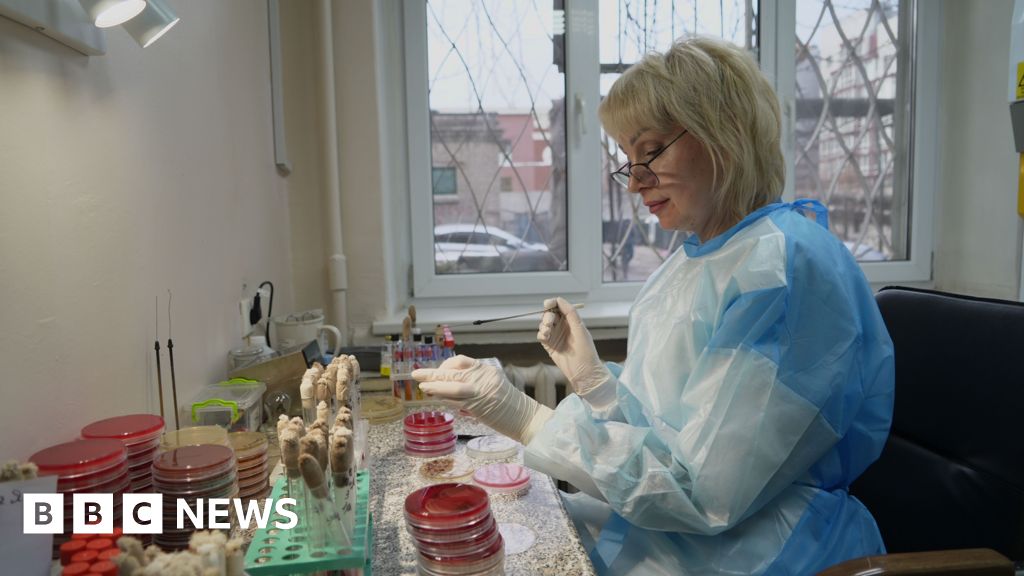ARTICLE AD BOX
 Image source, Rebuilding Korea Party
Image source, Rebuilding Korea Party
An opposition leader, Cho Guk, campaigning with a Dior handbag and spring onions
By Jean Mackenzie
Seoul correspondent
In February, the price of a single apple in Korea hit $7 (£5.5), albeit at a fancy department store. Fruit is notoriously expensive here, but for voters, who have been struggling with punishing grocery price rises, this crossed a line.
In a botched attempt to address their concerns, President Yoon Suk Yeol visited a food market and marvelled at how "reasonably priced" the spring onions were. The market in question was in fact heavily subsidised. Online outrage and mockery ensued.
"The president is going to be brought down by a spring onion," the leader of one of the opposition parties exclaimed.
But the price of food is just one in a long list of reasons why President Yoon's conservative party has lost South Korea's parliamentary elections, which were regarded as a vote of confidence on his first two years in office.
Mr Yoon has always been unpopular. Since being elected by the narrowest share of the vote in South Korean history - 0.7% - his approval rate has tended to hover around 30-40%. Last month, half of those surveyed judged him to have done a "very bad" job so far.
"There are many incidents that have chipped away at his standing," said the political scientist and polling expert Dr Lee Sangsin. First is a series of diplomatic gaffes, which have made international headlines, like when Mr Yoon was caught swearing on mic shortly after meeting US President Joe Biden. These incidents embarrassed Koreans who felt Mr Yoon had tarnished their reputation overseas.
Then there is his wife, First Lady Kim Keon Hee, who, according to Professor Lee, "people dislike even more than the president".
She has been accused of plagiarising her university dissertation and of manipulating stocks. Last year, footage emerged of her appearing to break anti-corruption laws by accepting an expensive Dior handbag. Despite initially playing an active role as first lady, Ms Kim has not been seen in public with her husband since.
Image source, Getty Images
Image caption,Mr Yoon with First Lady Kim Keon Hee , who analysts say is less popular than him
Mr Yoon has also alienated voters because of his confrontational political style. A former prosecutor with no prior political experience, Mr Yoon is sometimes said to act more like a prosecutor than a politician.
"He gives the impression that he is stubborn, doesn't listen or compromise, and has developed an almost authoritarian manner," said Dr Lee from the Korea Institute for National Unification.
In short, President Yoon has failed to win over voters beyond his loyal conservative support base. The consequence is that his party has failed to win control of the parliament, meaning it will be difficult for him to pass laws and fix urgent issues - such as a slowing economy, unattainable house prices and a rapidly ageing population.
Before Wednesday, the opposition already controlled the parliament. This defeat makes him the only president in South Korea's constitutional history to not hold a majority for the entirety of their single five-year term. His authority has been severely weakened and he risks becoming what analysts call a "lame-duck".
Friendly relations and growing rifts
With his domestic agenda hobbled, Mr Yoon has so far focused his efforts on foreign policy, and for all his unpopularity at home he has succeeded in making friends abroad. He entered office wanting South Korea to play a bigger role on the world stage, determined to move on from what he saw as the myopia of his predecessor, who towards the end of his term became all-consumed with making peace with North Korea.
Mr Yoon presented himself as a champion of liberal, democratic values, promising to call out those who did not adhere to them. His strategy has therefore been to get tough with Pyongyang. He has upped military drills on the peninsula, slapped sanctions on the North, and retaliated whenever Kim Jong Un has baited him.
His critics say he has been needlessly provocative. The North is launching more weapons than ever before, and relations between the two Koreas are at their worst in years.
But his relationship with the US has blossomed. Strengthening Seoul's security alliance with Washington has been at the heart of Mr Yoon's foreign policy. When he serenaded President Biden with a rendition of Don McLean's American Pie at the White House it was symbolic of how both countries were singing from the same page. Mr Yoon has been music to America's ears, as it pushes to strengthen its alliances in Asia to counter China.
Watch: South Korean president sings American Pie for Joe Biden
Mr Yoon won further respect from the US when he buried historic disputes with Japan, to spark up a three-way security relationship between Tokyo, Seoul and Washington, at significant political cost. The move was not popular at home, but western diplomats lauded the leader for his bravery and boldness. The lack of security ties between Japan and South Korea had been seen a major weak link in Asia.
But such boldness has carried a cost. In the past, South Korea has walked a delicate tightrope between the US and China, carefully balancing the needs of its military ally and its largest trading partner. "Strategic ambiguity" was the name given to this approach. But ambiguous is not Mr Yoon's style. He has been critical of China, even warning it over its behaviour towards Taiwan, to the fury of Beijing. This is not something South Korean leaders have ever done before. Mr Yoon's comments were seemingly impulsive and out of step with some in his team.
"There is a feeling among some in government that they have allowed relations with China to sour too much, and following the election they need to redress the balance, especially to revive economic relations," said Dongmin Lee, a political science professor at Dankook University.
Some here argue that although championing liberal democratic values is a noble pursuit, it is perhaps not the wisest strategy for a country sandwiched between China and Russia, especially at a time when both are drawing ever closer to your enemy. As one official said, "North Korea is a factor in every decision we make".
The biggest and most unpredictable challenge Mr Yoon faces in the year ahead is the possible return of Donald Trump to the White House. While president, Mr Trump courted Kim Jong Un and threatened to withdraw all US troops from South Korea. Whichever direction Mr Yoon takes, Trump's re-election may force him to switch course.
Image source, Getty Images
Image caption,Mr Yoon earned praise for a landmark three-way summit with President Biden and Japanese PM Fumio Kishida in 2023
But while Mr Yoon has aligned himself with the west as a defender of democracy, his government has been accused of democratic backsliding at home.
He has branded his opponents "communists", attacked the media for "fake news" and his office has pursued defamation cases against critical journalists. He has been accused of stoking gender divisions, vowing to abolish the government's gender equality ministry. Unable to do so without parliamentary support, he has instead left the position of gender minister vacant.
A recent report by Sweden's Varieties of Democracy Institute concluded that South Korea's democracy has been on a "downward slope" since President Yoon took office. The study ended up trending in the country, according to Jeongmin Kim, the editorial director of the Korea Pro news service: "It is clear that people, at least liberals and those in the centre, could spot the hypocrisy, and feel awkward when they see western leaders praising Yoon as one of the protectors of democracy."
Though split parliaments are common in South Korea, Mr Yoon has not once sat down with the leader of the opposition to seek compromise. Instead, he has resorted to his presidential veto to torpedo laws. He has used his veto more than any other president since the 1980s. This has earned him the reputation of someone who does not care about being popular, but someone who will do what he believes in, regardless of what others say or think.
"It seems that what Yoon really cares about is being remembered fondly by his hardcore supporters and in the history books - and not what the rest of the population, the parliament, or even his own party thinks of him," Jeongmin Kim said.
Yoon Suk Yeol has likely already earned himself a place in the history books through his reconciliation with Japan. But with his authority dented, he will carry less clout abroad going forward. At home, his lack of support means South Koreans can expect more parliamentary gridlock, political animosity and polarisation.

 9 months ago
67
9 months ago
67








 English (US) ·
English (US) ·